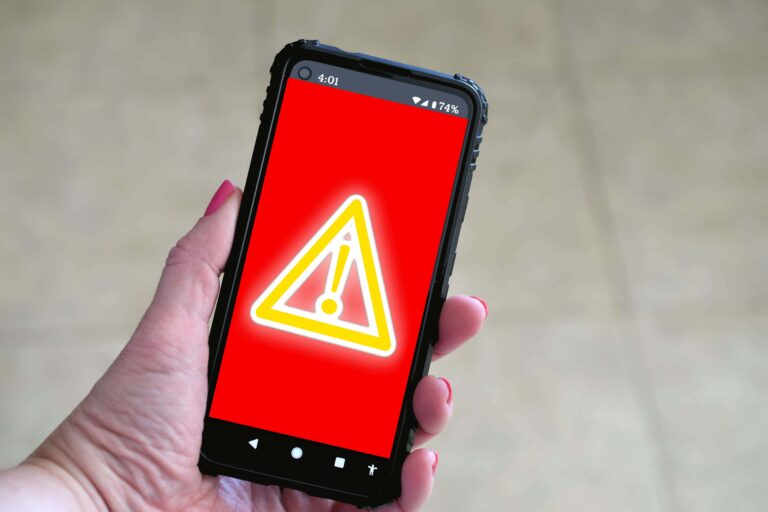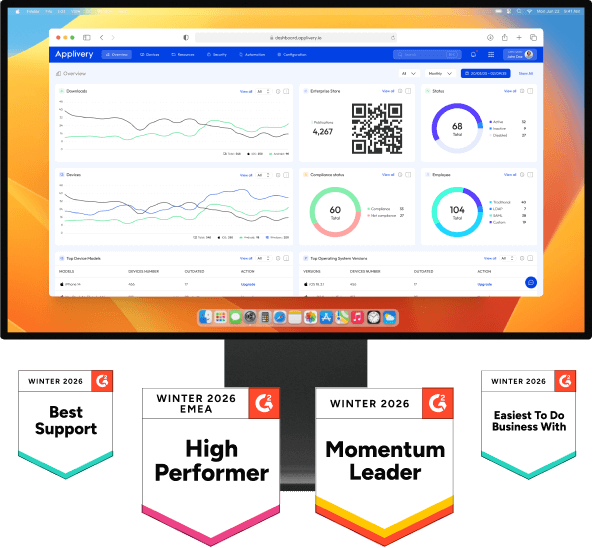For many, summer is a time to disconnect, but for IT teams and attackers, activity intensifies. The combination of reduced staff, increased travel, and the use of personal devices for work creates the perfect breeding ground for attackers to strike. It’s in this context that endpoint management becomes more critical than ever. To have a peaceful summer, it’s vital to manage the attack surface rather than just reacting to symptoms. Applivery helps you be proactive and maintain control, allowing your team to work with flexibility without compromising security.
The attack surface you can't see: the BYOD challenge
The underlying challenge during the summer isn’t just the network; it’s the personal device. For IT teams, managing personal devices is a hurdle, as they can’t guarantee that patches are up to date or control which applications are installed. This amplifies exposure to critical operating system and widely-used application vulnerabilities and facilitates the entry of malware through the device’s “personal side.”
In fact, 61% of IT teams fear data loss and 53% fear information theft because personal devices are more difficult to govern and keep secure than corporate ones. During the summer, this risk is exacerbated by increased use of public networks and a relaxation of users’ security habits. The result is an unobservable surface that is difficult to audit and remediate in a timely manner.
The attackers' playground: public wi-fi and malicious QR Codes
When we talk about cybersecurity during vacation, the focus isn’t just on devices, but also on the environment. During the summer, attackers find the perfect stage for their operations in public access points.
- Open public wi-fi
Airports, hotels, and cafes are full of open networks and “malicious twins” that mimic legitimate ones. This can lead to intercepted sessions, stolen tokens, and manipulated traffic without the user even noticing. The traditional recommendation to use a VPN isn’t always applied consistently if centralized device management is lacking.
- Malicious QR codes
The replacement of legitimate QR codes with malicious ones can redirect users to phishing pages or download malware. On a mixed-use phone (personal and work), a malicious QR code can lead to credential theft or code persistence that is later exploited when the user accesses corporate resources.

The solution: effective endpoint governance
The operational conclusion is simple: to have a peaceful summer, it is essential to manage the attack surface rather than just reacting to incidents. The key lies in effective endpoint governance.
Applivery offers you the perfect solution through two complementary approaches:
- BYOD with mandatory security criteria
This approach allows BYOD only if the device continuously proves it meets minimum security conditions: a supported and patched operating system, robust locking, the absence of root or jailbreak, installation restricted to official stores, and VPN use on untrusted networks.
- COPE (Corporate-Owned, Personally-Enabled) model
This model is more predictable in terms of risk reduction. Since the company owns the device, it guarantees policy homogeneity and the ability to perform an immediate remote wipe in case of loss or theft. Additionally, containerization or the work profile strictly isolates corporate and personal data, ensuring that an attack on the personal side does not affect the work.
Live more peacefully this summer with Applivery
With Applivery, you can live more peacefully this summer. Our platform allows you to be proactive and solve security challenges before they escalate. Thanks to unified management and automation, you will be more productive and efficient, ensuring the continuity and security of your company.
Discover how Applivery transforms cybersecurity in your organization. Request a personalized demo and let’s talk about how we can help you protect your endpoints.







